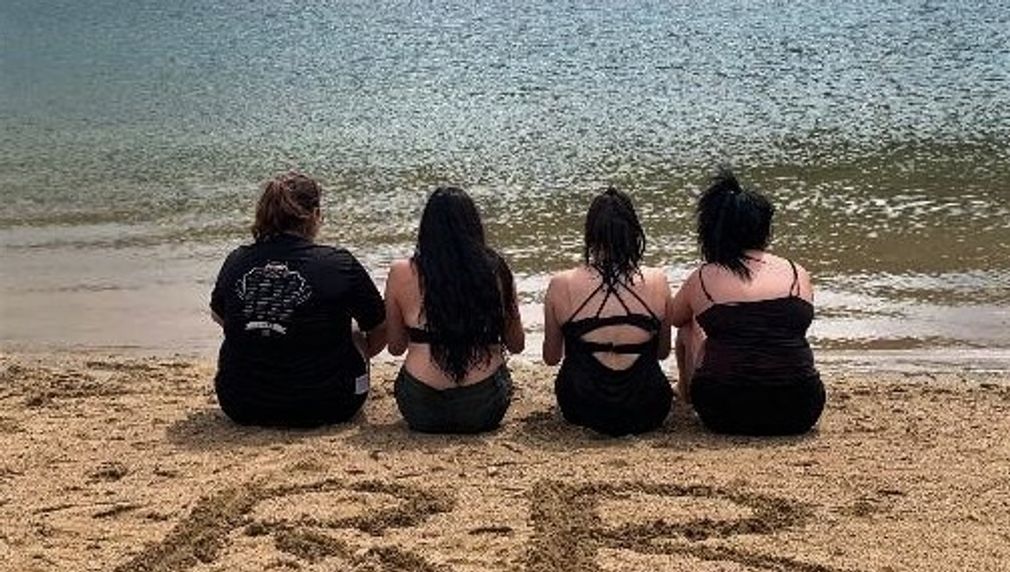Residential Treatment for Survivors of Exploitation
Resilience Rising's new adult residential facility will serve female-identifying survivors of sexual exploitation, trafficking, and the sex trade. The six-bed program will provide 24-hour care, supervision, and treatment for young adults ages 18-25 with mental and behavioral health needs. It will be licensed through the California Department of Social Services and will partner with child welfare for older system-involved youth and justice diversion and re-entry programs for prostitution concerns.

What is the primary issue area that your application will impact?
Support for Foster and Systems-Impacted Youth
In which areas of Los Angeles will you be directly working?
County of Los Angeles
In what stage of innovation is this project, program, or initiative?
Expand existing project, program, or initiative
What is your understanding of the issue that you are seeking to address?
Sexual exploitation is inherently a system of gender-based inequality and violence, existing at the intersection of sexism, racism, and classism. The sex trade preys on marginalized populations: homeless youth, foster youth, sexual minorities, and vulnerable women with histories of sexual abuse, domestic violence, homelessness, mental health conditions, substance use disorders, disabilities, and immigration status. Individuals in the sex trade industry are ongoing targets of physical and sexual violence, resulting in physical and psychological health problems, high morbidity outcomes, and disproportionately high mortality rates. Research indicates that the vast majority of those in the sex trade want to leave but lack the options, resources, and agency to safely and successfully exit. Providing survivors with access to safe housing and social services has promising potential to break the intergenerational cycles of poverty and trauma that make them vulnerable to exploitation.
Describe the project, program, or initiative this grant will support to address the issue.
Resilience Rising's new adult residential facility will serve female-identifying survivors of sexual exploitation, trafficking, and the sex trade. The six-bed facility will provide 24-hour care, supervision, and treatment for young adults ages 18-25 with mental and behavioral health needs. It will be licensed through the California Department of Social Services and will partner with child welfare for older system-involved youth and diversion and re-entry programs for prostitution concerns. Using a harm reduction approach and evidence-based interventions, our residential program aims to support and empower young survivors of sexual exploitation with coping and life skills needed to break intergenerational cycles of abuse and trauma. Residents attend onsite educational programming including GED tutoring sessions, technical certification programs, or higher education courses. Residents attend onsite individual therapy, dialectical behavior therapy (DBT) skills groups, psycho-educational survivors groups, psycho-educational recovery groups, and therapeutic workshops including experiential therapy, trauma-informed yoga, ocean therapy, animal-assisted therapy, and creative arts therapy. Case management ensures the coordination of offsite services for medical care, reproductive healthcare, dental care, psychiatric care including medication-assisted treatment for substance use disorders, legal advocacy, and vocational opportunities in the community.
Describe how Los Angeles County will be different if your work is successful.
Homeless youth are disproportionately female, LGBTQ, BIPOC, and foster youth. Homelessness is one of the top risk factors for trafficking and sexual exploitation. Women of color are disproportionately incarcerated for prostitution charges. Through the provision of residential treatment for survivors, Resilience Rising helps to move vulnerable individuals away from the streets and jails into community-based services. Community-based interventions reduce harm in this population and reduce rates of recidivism in the targeted and associated behaviors. Our program empowers survivors at the micro level while simultaneously offering systemic change at the macro level through alternatives to homelessness and incarceration. In addition to our residential treatment program, Resilience Rising is in the process of opening a permanent supportive housing program for survivors to ensure that a lack of safe, stable housing is never a reason for entering the sex trade nor a barrier to leaving it.
What evidence do you have that this project, program, or initiative is or will be successful, and how will you define and measure success?
Resilience Rising acknowledges that healing from trauma is a non-linear, life-long process and that relapse is a common part of the journey. Thus, we do not measure success through an all or nothing lens, particularly in regards to sobriety, intimate partner violence, and sexual exploitation. We often see survivors take two steps forward and one step back. That step backward simply presents another opportunity for pause, reflection, and problem solving moving forward. Resilience Rising employs the stages of change model to meet survivors where they are and utilizes a harm reduction approach to measure success. We assess program impact and outcome by measuring indicators related to self-concept and self-actualization, physical and behavioral health, safety, housing, education, employment, life skills, social support, and parenting skills.
Approximately how many people will be impacted by this project, program, or initiative?
Direct Impact: 15
Indirect Impact: 30